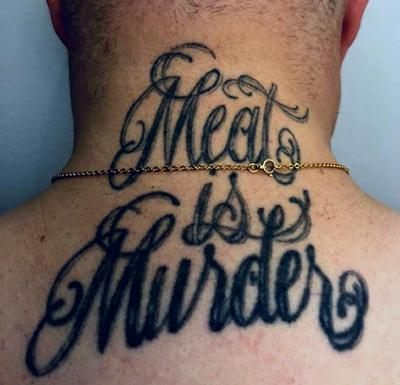Politics Of Animal Rights Movement In New York City
“Many constituents are one-issue voters. And their one issue is animals,” said Manhattan Assemblywoman Linda Rosenthal, in a recent City & State New York article. Rosenthal is deemed “likely New York’s most prolific legislator on animal welfare issues.”
Rosenthal has passed at least one animal welfare law each year since first joining the New York legislature in 2006. According to the article, Rosenthal, a Democrat, would often pass bills, working with Republican legislators.
“Caring about animals is not a partisan issue,” she said. But in recent years, Rosenthal said, her animal welfare bills have been getting more support. For that, she credits the “years of education and effort and advocacy” by animal welfare groups – but also their pull at the polls.
“I always get pushback when one of my bills is going forward, and the animal advocates send out email blasts to everyone,” Rosenthal told City & State. Lawmakers complain to her: “‘My whole inbox is full of people advocating for your bill!’ So I think legislators are realizing this is an important constituency.”
So far, so good. No one can argue against treating animals respectfully, stopping the abuse of animals and a host of other “animal welfare” issues.
The problem arises when, as is all-too-often the case, there is a hidden, or not-so-hidden, agenda. In the midst of the “feel-good” animal welfare legislation being introduced and passed, the social engineering bills begin to rear their ugly heads. A perfect example is the “meatless Monday” initiative imposed earlier this year, affecting the lunch program in all of New York City’s public schools.
Another is known as the fur ban bill which would prohibit the sale or offer for sale of fur apparel, except used fur apparel and fur apparel that is worn as a matter of religious custom. Violations would be punished by a civil penalty of no more than $500 for the first violation, and no less than $500, but no more than $1,500 for subsequent violations.
Fur apparel offered for sale, and revenue generated from the sale of fur apparel, would be subject to forfeiture. This bill has been introduced by Corey Johnson, New York City Council Speaker. It is being speculated that Johnson will be throwing his hat into the 2021 NYC mayoral race.
An interesting player in the New York animal rights movement is NYCLASS – the New Yorkers for Clean, Livable and Safe Streets. The name would indicate a group more concerned with crime control than animal rights.
“There’s a lot of animal rights legislation that’s finally making progress after years of not a lot of progress on that front,” said Edita Birnkrant, executive director of NYCLASS.

“NYCLASS has just lobbied extensively, spending $156,000 lobbying for animal welfare legislation in the first six months of 2019 alone, but the organization has also been quite generous to politicians that agree with them. NYCLASS and its main backers, real estate executives Stephen Nislick and Wendy Neu, were major donors to New York City Is Not For Sale, a political action committee that spent more than $1 million ahead of the 2013 mayoral race. NYCLASS directly spent nearly $190,000 supporting de Blasio and other candidates that cycle, and in 2017 spent more than $230,000 backing six City Council candidates. As an independent expenditure committee, NYCLASS can blow past city-mandated spending limits as long as it doesn’t coordinate with candidates directly,” said the City & State New York article.
Added to the mix are animal rights activist politicians such as Brooklyn City Councilman Justin Brannan who has a “meat is murder” tattoo on his neck. Interestingly, Brannan admits in an interview with City & State New York that he covered up his tattoos while campaigning for the Council. Brannan is just one of a growing number of elected officials in New York who eschew meat.

